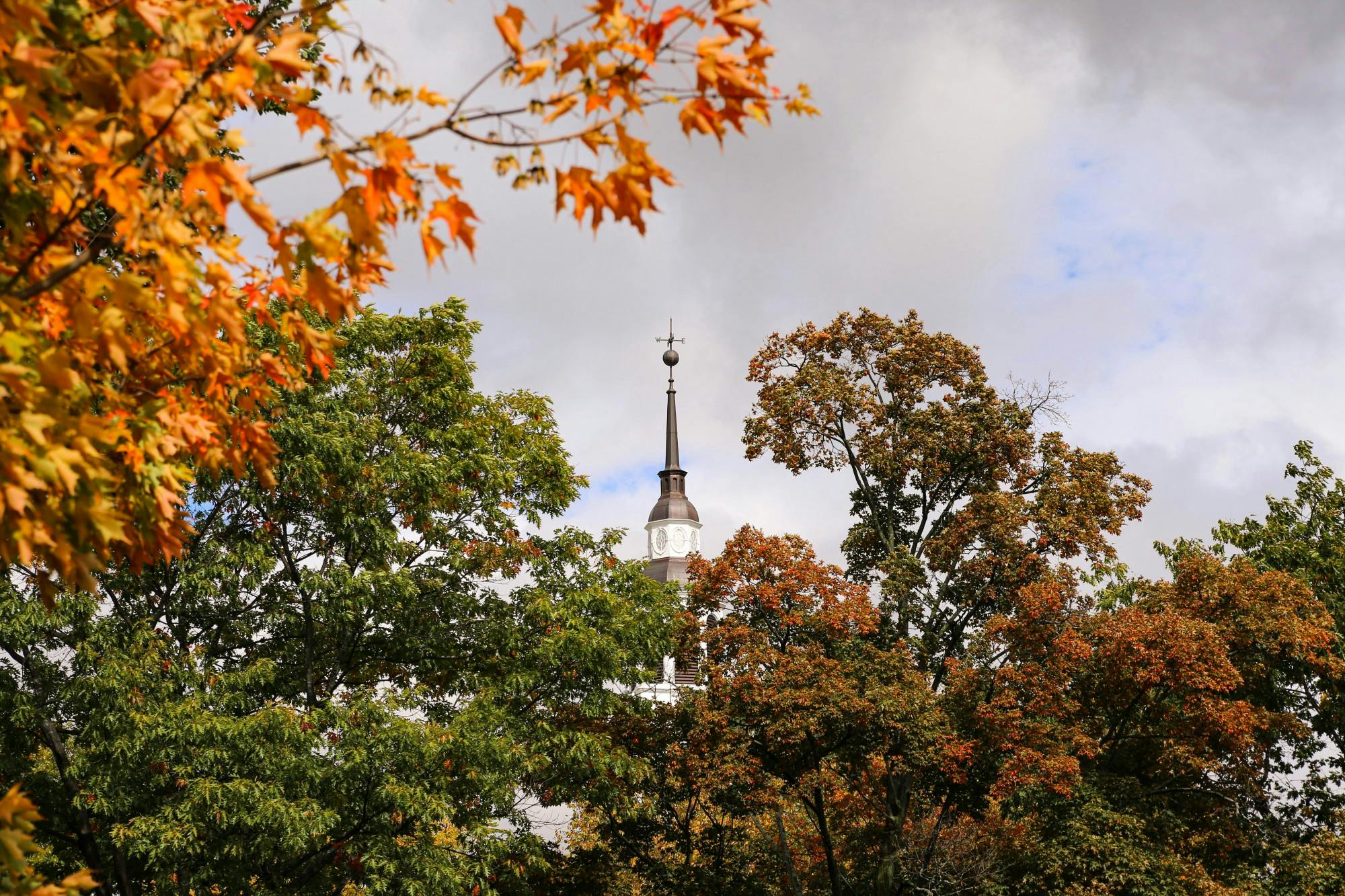A year after 89 individuals were arrested during a pro-Palestinian protest on the Green on May 1, 2024, faculty members are still divided on the response to the protest and the state of free speech on campus.
Reflecting on the past year, history professor Annelise Orleck, who was arrested during the protest, said she believes that the May 1 protests signaled a “different era” in debate on campus.
“I think a lot has gotten worse since that time, certainly since the inauguration of the new [President Donald Trump’s] administration,” Orleck said. “I think the College is now in a very fraught position.”
University of California, San Diego literature professor Ainsley Morse — who was a professor at the College at the time of the arrests — described the administration’s response to the protest as “egregious” and “completely incommensurate.” She suggested that the decision was possibly influenced by police responses to protests at larger universities.
“I struggle to understand why,” Morse said. “I think there were quite a few other small colleges in semi-rural areas … who were able to respond to the protest in a much more local way that felt appropriate to the size of the school and the actual circumstances of the protest.”
A College spokesperson declined to comment on the administration’s response to the protest.
However, anthropology professor Sergei Kan said he believes that while protesters had the right to demonstrate, the Green was not an appropriate place for encampments. He added that he believes College President Sian Leah Beilock gave protesters time to express their views, then disperse, but “had to call the police” after they did not.
“I strongly agree with [Beilock] that the Green should not be the place for encampments because that is our public space for all students and all faculty and all staff,” Kan said.
Economics professor David Blanchflower echoed this sentiment, noting that the protest “became something that she could not control.” While the response “probably escalated a bit more than it should have,” Blanchflower said campus has been “calm” since.
The scale and nature of the police response particularly have drawn divided reactions from professors. Shortly after the protesters set up tent encampments, state police arrived in riot gear. English professor Jeff Sharlet said he believes the presence of the state police team was inappropriate for the gathering.
“The SWAT team ... is trained for very violent situations,” Sharlet said. “... There’s nothing there about crowd control.”
Kan disagreed, saying that he believes state police responded because the Hanover Police Department was not equipped to handle the protest.
“I know she was accused later of calling ... very heavily armed police, but I don't think that’s her fault because she obviously started with Hanover police, but Hanover police is a tiny, tiny number of police officers,” Kan said.
In the direct aftermath of the arrests, faculty members voted 183-163 to censure Beilock for her response to the protest. The motion passed by a narrow margin of 20 votes, highlighting divisions within the faculty.
“We were divided,” Kan said. “ ... I know that those who voted to criticize the president were very surprised that so many of us voted to support her.”
However, the vote to censure never materialized into a further action.
“Absolutely nothing happened,” Morse said. “[It felt like] this institution could not [care less about] what the faculty think.”
Orleck noted the division seen in the censure vote persists.
“I think there’s a divide among the faculty,” Orleck said. “We saw it during the censure vote last May. We had a small majority, but only that. There’s going to be disagreements among the faculty but as long as they’re respectfully expressed, that’s what free speech is.”
A year later, faculty members continue to debate the relationship between free expression and campus order. Despite differing opinions about the administration’s May 1 response, some faculty members, including Kan, appreciate the level of campus civility.
“Even when we disagree, by and large we agree to disagree and I don’t see our professional relations and interactions being affected by disagreements,” Kan said.




